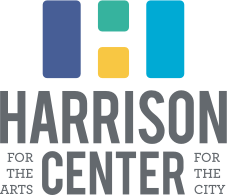Some Books Make Us Free
Written by Haley Hunt
In the past, artists have used their art to speak about and in response to the world around them; they have used it to comment on their contemporary life. The present is no different. In the midst of a global pandemic as well as national turmoil, artists are continuing to make art that speaks to what we are all living through. This show, entitled “Some Books Make Us Free”, uses rare copies of classic books to relate the past to the present and generate commentary on the present state of the country.
While the “Some Books Make Us Free” exhibit is new in October 2020, it is the second time that the Harrison Center has presented a show like this. In July of 2019, a similar show was presented with the same sponsor: the Sagamore Institute. These shows were also curated by Alexandra Hudson and the limited-edition books were provided by Remnant Trust.
This show is a group show consisting of four artists: Shamira Wilson, Alicia Zanoni, Kipp Normand, and Johnny McKee. Each of these artists have been given three rare books to draw on for inspiration in their pieces and have also been given the theme of citizenry to work around. What makes this show so exciting for me is the way that these artists have each used books that were written so long ago and have not only connected these texts to their work, but also to contemporary ideas.
When viewing this show, I think that it is very important to enter with the theme, citizenry, in mind. I think that viewers are prompted to consider what being a citizen of a community, state, or country means to them and how this art encapsulates that. Concerning Equality, a piece done by Kipp Normand, was inspired by a first edition copy of Democracy in America, by French aristocrat Alexis de Tocqueville. The evident contrasting colors of this piece could draw parallels to the different democracies that Tocqueville saw when living in France versus America. The artist connects this rare text, and subsequently his work, to the present day through the statement “[Tocqueville] understood that democracy is a fragile thing and issues like racism and inequality which de Tocqueville observed in 1835 continue to threaten our democracy today”.
A secondary theme of this show, which often stems from citizenry, is political dissent. Citizens of America have been engaging in political dissent since the birth of this nation and today’s citizens are no different. Over the course of the past year, political dissent has often been displayed in the form of protests.
Johnny McKee was given a rare copy of Critique of Pure Reason by Immanuel Kant to work with. This piece was specifically inspired by a quote from this text, which reads “Two things fill the mind with ever new and increasing admiration and awe, the more often and steadily we reflect upon them: the starry heavens above me and the moral law within me”. The artist describes this piece as a meditation of these ideas: the starry skies and morality. While the visual aspect of starry skies is rather clear to the viewer, you may wonder about how the artist portrayed morality in this piece. McKee stated that when he read this line, he thought of today’s protestors and how they were in some cases met with tear gas; he said that he tried to portray the tear gas visually to represent the morality, or lack thereof, involved in political dissent, protest, and the state’s response.
When I view this piece, and many of the other pieces involved in the show, I am faced with many internal questions about my own thoughts on citizenry and protest. This is a great show to have during our modern America because it reminds us that none of this is new. Even though these times of political unrest seem unprecedented, we can use these texts from our past to examine our present and look to our future.
Be sure to check out this exhibit in the Main Gallery at the Harrison Center through October 30th!



